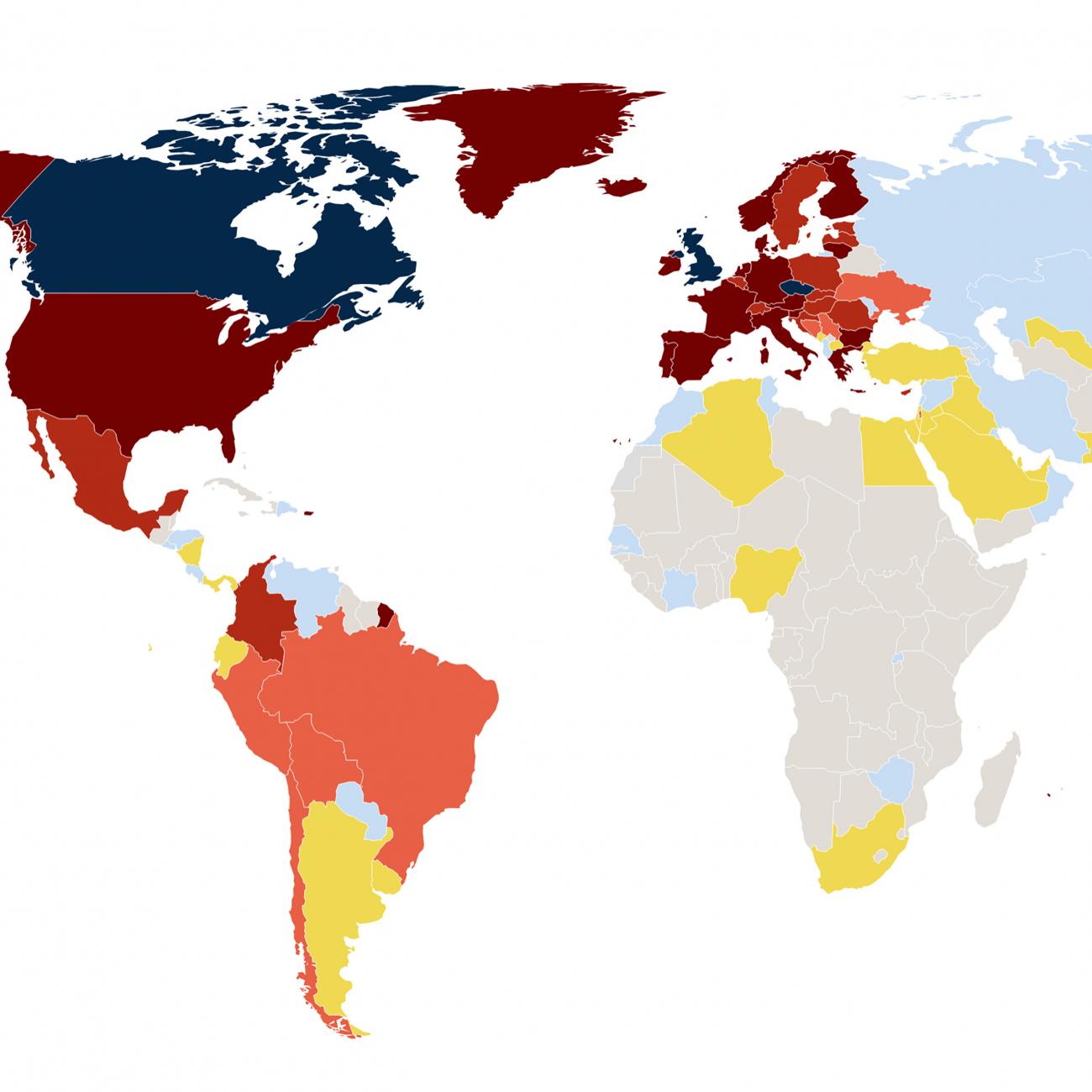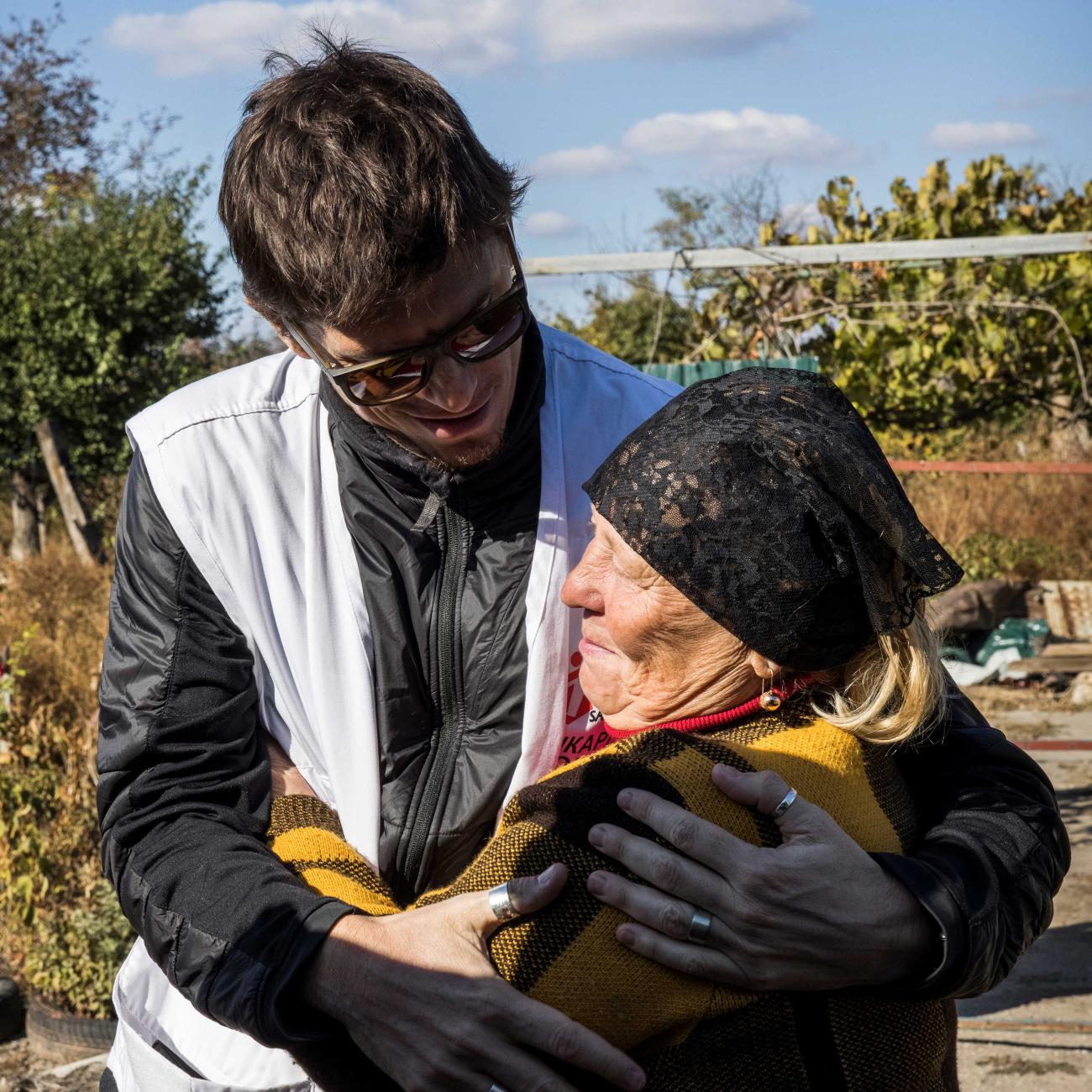Two months into the global rollout of coronavirus vaccines, approximately 150 million doses of vaccines have been administered in 67 countries. Early vaccine administration has favored a handful of nations, which represent 80 percent of the doses used so far. There are nearly 130 countries with 2.5 billion people that have yet to administer a single dose.
Distributing different quantities of vaccine to different countries is not necessarily unfair provided that scarce early doses are going to the nations and into the arms of the people where those vaccines may do the most good. Leading ethicists argue that vaccine doses should be allocated in a manner that prevents the most harm by reducing premature deaths and other irreversible direct and indirect health, economic, and societal impacts.
One crude measure for judging the potential for early vaccination to prevent harm is reported COVID-19 case counts. It is an imperfect measure that does not take into account the age structure of a population, the potential for avoiding further impoverishment, or the prevalence of high-risk medical conditions such as diabetes or obesity that worsen the consequences of COVID-19. The true number of SARS-CoV-2 infections is undoubtedly much higher than reported case counts, especially in nations where testing rates are low. However, reported case counts are available globally and provide at least some rough sense of whether early vaccines are going to where the coronavirus crisis is the most severe and doses may do more good.
By comparing cumulative reported cases and early COVID-19 vaccine administration, it is clear that countries that have been disfavored the most in the vaccine rollout to date are middle-income nations, as defined by the World Bank. Middle-income nations represent nearly half of the global burden of coronavirus cases, but a little more than one third of vaccine doses administered.
The disparity grows larger when China, classified as an upper-middle-income nation, is excluded. Despite being the origin of the novel coronavirus, the number of cumulative COVID-19 reported cases in China is relatively low, and the country has administered more doses than any other country besides the United States. When China is excluded, middle-income nations still represent nearly half of the global burden of coronavirus cases, but only 17 percent of vaccine doses administered. Excluding China, 83 percent of vaccine doses administered have been in the wealthiest nations.
National examples of the greatest disparities between reported cumulative cases and early vaccine doses administered reveal that vaccine nationalism is not solely a Western country phenomenon. The most extreme examples of nations using up the early doses of vaccine at a rate disproportionate with their reported COVID-19 burden are China, the United Arab Emirates, and Israel. China is by far the most egregious example, and while it is using locally developed and manufactured vaccines, so too are the United States and the United Kingdom.
The list of nations that have been unable to administer vaccine doses comparable to their reported coronavirus cases is more geographically varied. The region with the greatest discrepancies is Latin America—Argentina, Brazil, Colombia, Mexico, and Peru in particular.
Brazil, like India, is administering vaccines but not at a pace comparable to the size of its case burden. As our Vaccine Spheres of Influence Tracker shows, many countries in this region are turning to the Sinovac and Sinopharm vaccines from China—vaccines that have yet not to published the data from phase III trials. South Africa, where coronavirus infections are spreading fast, indicated it will begin immunizing more than a million health-care workers with Johnson & Johnson vaccine as part of a study to determine the vaccine's effectiveness, including against B.1.351 variant. Several European countries—France, Spain, the Netherlands, Portugal, and the Czech Republic—are being penalized by the slow European Union rollout of vaccines.
The table below lists the current cumulative case counts and number of vaccine doses administered for each country.
A precondition for reducing the long-term health and economic damage of the coronavirus pandemic is bringing the coronavirus under control. The more that the coronavirus spreads the more likely it is to mutate and produce genetic variants that are more contagious, deadly, or resistant to proven vaccines. Mask mandates, restricting international travel, and increasing genomic surveillance for variants are prudent measures, but they are no substitute for reducing new infections by targeting scarce vaccine doses to the locations where the crisis is most intense.






